From the time my son was 12 months old until he reached age 24 months, it’s conservative to estimate he bit nearly fifty other children.
Yes. Fifty.
It brings tears to my eyes sharing that with you right now because that is an insane number of children to bite. And because working through a year of biting is an insanely long time.
*post may contain affiliate links
I’m just a regular stay-at-home mom with a regular toddler boy. He loves to run, play in dirt, chew on sticks, and laugh.
Turns out, he also loves to bite.
At first, we thought it was just a regular biting issue that would pass in no time at all. We did all the right things that all the parenting experts recommended: saying no, teaching consequences, comforting the victim, offering other acceptable ways to bite or chew, and so much more.
And yet…
Nothing improved.
We continued to struggle so much that we removed ourselves from about eighty percent of social situations involving other children. The biting was incessant, unprovoked, and it was extremely stressful for everyone involved. I was left tearfully wondering why is my child so angry and aggressive.
But this story isn’t really about a kid biting.
Maybe you’re a parent struggling with tantrums, whining or backtalk. Or maybe you’re parent struggling with hitting and kicking. Or maybe you’re a parent struggling with teasing or saying mean words. Or maybe you’re a parent—just like me—struggling with biting.
No matter your struggle, you try to do all the right things to teach and guide your child towards positive behavior. You stay up late Googling solutions. You try to stay patient. You aim for consistency.
And yet, the negative behavior continues.
But what if there was a better solution?
One important solution to challenging behaviors.
Several months ago, a friend shared a copy of The Danish Way of Parenting with me. Dealing with the biting and several other negative behaviors, I was open to reading or trying anything. I remember clutching the book tightly with my hands as I grabbed it from our post office box, then sneaking off to the car to catch a glimpse of the first few chapters. I was hoping for answers, yet remained cautiously optimistic.
When I reached the fourth chapter—Empathy—my eyes widened as I read this quote:
“Empathy is the ability to recognize and understand the feelings of others. Simply put, it’s walking a mile in someone else’s shoes.”
The lightbulb went on in my brain. If I could help my toddler understand that his negative behavior was hurting others—even in the simplest capacity—it could help him gain enough self-control to stop hurting other children.
Glued to the page, I continued reading…
“Parents have a big responsibility because they are the primary example of empathy and must practice being empathetic themselves. This can be done with their use of language, their behavior and actions. Children will constantly be focused on their parents and will mirror them. Therefore, what they experience in the home will be crucial for their empathy development.”
I was sold. Teaching our son empathy was a key factor in helping him stop biting. In fact, teaching any child empathy is a key factor towards stopping any negative behavior.
You might be thinking how exactly do you teach a young child empathy?
A step-by-step guide for teaching empathy.
Teaching empathy to kids is not an easy solution to remedy negative behavior, but it is an important solution. Learning empathy takes time, along with a lot real life application from parents and others who are with your child on a daily basis.
Here is one way parents can teach empathy:
1. Your child exhibits a negative behavior
2. Set a boundary.
Examples:
- “We don’t hit others”
- “That’s too rough.”
3. Convey empathy towards the hurt child using both actions and words.
Examples:
- “You hurt her and she feels sad.”
- “Looks like you’re really upset.”
- Patting the hurt child on the back, looking concerned or offering comfort in some way.
4. Allow your child the opportunity to mirror your behavior.
Examples:
- “Show me kind and gentle”
- “Looks like she needs help.”
Here is a second way parents can teach empathy:
This second method is an activity you can do with your child before the negative behavior occurs. It’s a way of practicing at home to help your child recognize the feelings of others and how to respond. Since this activity is proactive, it helps children learn about empathy without the stress and heightened emotion experienced during a real life event.
1. Show your child pictures of kids conveying a variety of emotions: sadness, fear, anger, frustration, happiness, etc.
2. Help your child label the emotions.
3. Help your child explain what to do if she saw a child experiencing a given emotion.
Using a combination of the first and second methods over the course of time can help toddlers learn about empathy in a safe and effective way.
Did the biting ever stop?
Just yesterday, I took a leap of faith and went to a playgroup with my son. Chatting with the other moms, I heard another child start to scream. Initially my heart sank, and all I could think was please not again. I turned my head, saw my son and our eyes met.
My heart melted.
There sat my son comforting the crying child who was hurt from falling down. My son—the boy who bit nearly fifty other children—was now patting another little boy on the head asking about his “boo-boo.”
He was walking a mile in another child’s shoes.
He was understanding the feelings of others.
He was empathizing.
To be honest, I never thought this day would come. After twelve arduous months of teaching and teaching and guiding and then teaching some more, it was difficult to envision the light at the end of the tunnel.
Teaching empathy was a lot of work, but it was worth every bit of energy. It lead our family to a much happier place. It transformed everyday life for my husband and I as parents and for our toddler too.
Our work isn’t done yet though.
There is so much more to learn about empathy in the years to come.
For him.
For me.
For us.
Print this free empathy printable!
Chances are you won’t remember the tips shared in this post. I’ve done the heavy lifting for you and created this printable to make teaching empathy easy for you!
Here’s a sneak preview…
Download Your Free Printable
- Download the checklist. You’ll get the printable, plus join over 37,000+ readers who receive my weekly-ish parenting ideas!
- Print. Any paper will do the trick, but card stock would be ideal.
- Place it on your refrigerator. Use it as a quick reference to keep parenting simple!
Want more on toddlers?
- 4 Important Words to Help End Power Struggles
- 2 Year Old Not Listening? Try This Remarkable Tip
- What No One Tells You About Parenting Toddler Boys
- The Real Reason Kids Never Want to Go to Sleep
- How to Stop Toddler Hitting – The Easy Way!
If you are interested in learning more about The Danish Way of Parenting click the link to see it on Amazon.
I've created a free email series just for you! If you are struggling with teaching your child to listen, this series will help transform your parenting. Yes, really. I've seen my proven strategies work time and time again for parents. I know it can work for you too.
After taking my free email series, you will:
- Learn simple, yet highly effective listening strategies
- Experience a stronger connection with your child
- Enjoy more peaceful parenting days
- Gain more cooperation from your child


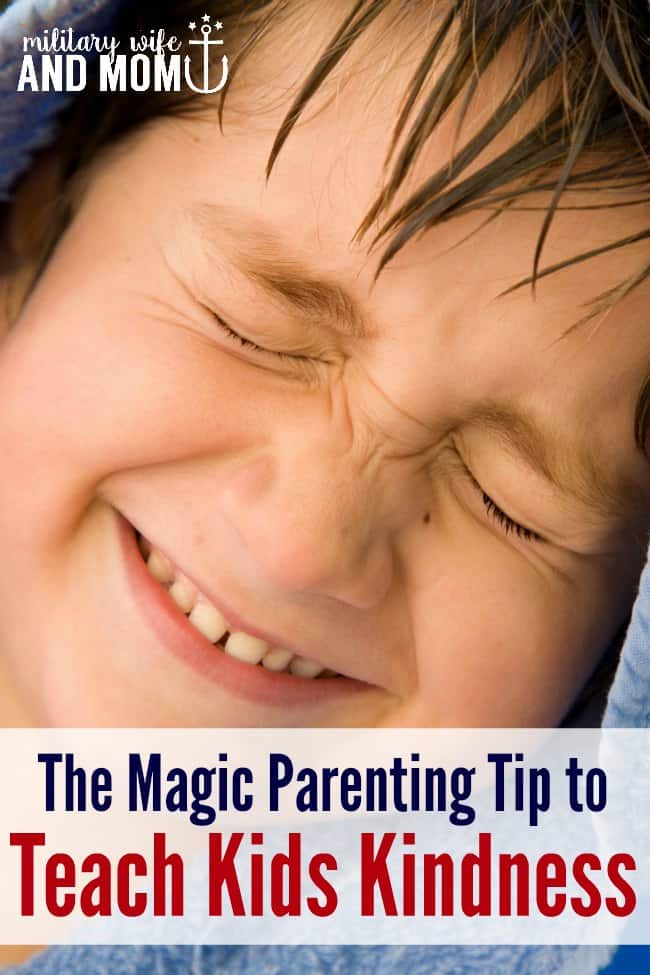

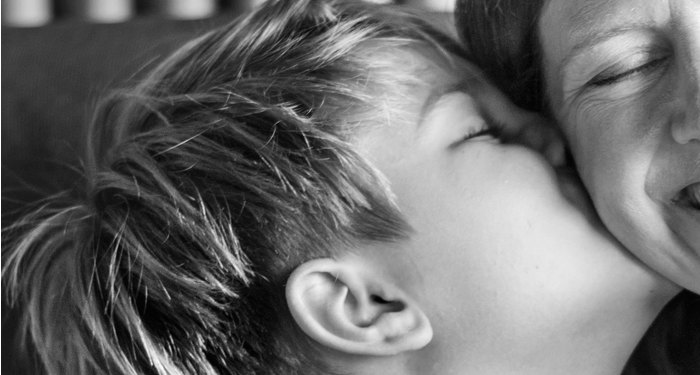
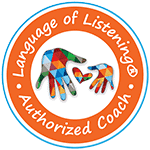
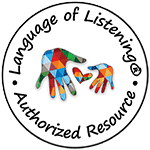
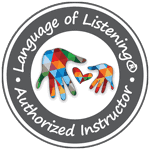
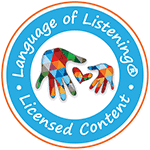








This is so important and what a great approach to it. We live in such a world that empathy is lacking. Instead of comforting those around us who are struggling, as a society, we tend to smear images and words all over the internet… it’s the adult biting I guess. Thanks for this post!
Yes! The adult biting. We need more positive change.
I have not heard of this method before. It seems logical and effective! The toddler stage is full of trial and error and this method seems worth a try!
http://www.justamilitaryfamily.com
So glad for this article, I think it’s important for parents to understand the power of empathizing with their children. I wrote about this a little bit in my article Why You Should Never Get Tough With Your Kids http://www.1awesomedad.com/why-you-should-never-get-tough-with-your-kids/ but only covered empathy a little bit towards the end. Empathy is like magic, it just takes some practice and trust that it works to help kids get through difficult emotional stress.
Yes, exactly! Empathy is like magic except it takes a lot longer, haha.
This was good to read. My most outgoing child just took a step backwards and bullied a kid last week. Normally she’s the most empathetic child, really a joy. I was bullied constantly through my growing up years, and burst into tears listening to her brag about the incident at school. To give her credit, this child has bullied just about everyone in the class, but that does not excuse the actions of my child.
We talked it through, she went back the next day and apologized. I was embarrassed by my emotional response, yet that seemed to pull on her sense of unfairness that any bully plays on.
I will keep working on empathy. My 5 kids are no longer toddlers, but I think this is a very important skill to teach each child. Love wins.
Yes. Empathy is important at every age and it’s not just for toddlers. It’s really encouraging to hear how you helped your daughter. Love does win!
Thank you for your posts on biting! I have been in tears many times in the past month over our daughters biting. She was born 2 months early due to a high risk TRAP twin pregnancy, so she is 22 months, but if she would have been born on time would be 20 months. She has had issues with biting since she was 14 months/12 month corrected. She is currently suspended from daycare until she shows improvement. Like you said in an earlier post I read we have tried everything people have suggested and ideas we have read online and nothing has worked. At times it seems it’s a frustration thing, other times it is when she is tired or over stimulated, other times it seems out of the blue! She now laughs when she bites or smiles and says “I bite!” It is embarrassing and frustrating. I always say to my husband it’s like she doesn’t have any sense of remorse. We have talked to her about some of the things you said in this post, but I like the idea or practicing with her more at home and having her show a nice touch to the other child. We do have her apologize and give the other child a hug after we have removed her from the situation and talked to her. That is so awesome about your son showing empathy towards another child! What a heart warming moment! Thank you for your post and encouragement!
You are so welcome. My biting posts are for those who they help the most. I’m so glad this post found you. It is so defeating when you struggle with a serious biting issue and nothing seem to work. Hang in there. Keep trying. Eventually something will stick.
Oh Alicia, I feel your pain. Biting was a huge issue for us. It took forever! But it finally did resolve after a year and now he is the kindest boy. Keep trying. You will get there.
My toddler was bitten by another child to the point of skin puncture and blood. My son has been taught not to hit bite be hurtful he understands empathy and offers comfort to others that get hurt. Every parent should teach their child to be empathetic its not acceptable to go and bite other toddlers or children’s.
I’ve been reading the posts related to your biting saga. My son has been biting other kids from what looks like overstimulation for 5 months now (he’s 17 months). He started daycare this morning and badly bruised a girl and broke skin within the hour.
The daycare knows he bites and is willing to work with us to correct it but I can’t help but think the inevitable overstimulation in this environment is going to doom him and harm so many others. He always seems to bite that hard which does pose a big risk to other kids. I also don’t see him really learning empathy for many more months.
I feel so helpless. We’ve been working on this for 5 months following everything you’ve recommended with no improvement. Avoiding social situations and shadowing him when he’s around others seem to be all that works.
Hi! My son is 16 months old and has been biting only other children (no adults) because he gets over excited when he sees them. He started about 6 months ago and we have since started with early intervention once a week for 3 months but nothing seems to be helping! He still bites weekly at daycare. Everyone keeps telling me “it’s normal” and “just a phase” and “probably just teething” but it feels like it’s never ending and I want my son to be able to have healthy friendships. Husband and I noticed we are shying away from social activities and events with other kids cause we are afraid he will bite. My son gets so sad that none of the other children will play with him. I have read all of your articles on biting and first of all am relieved that your son has stopped biting. I will have to try the empathy. I know he’s still a little young developmentally for empathy but I hope it works! Thank you for the advice and the words of encouragement.